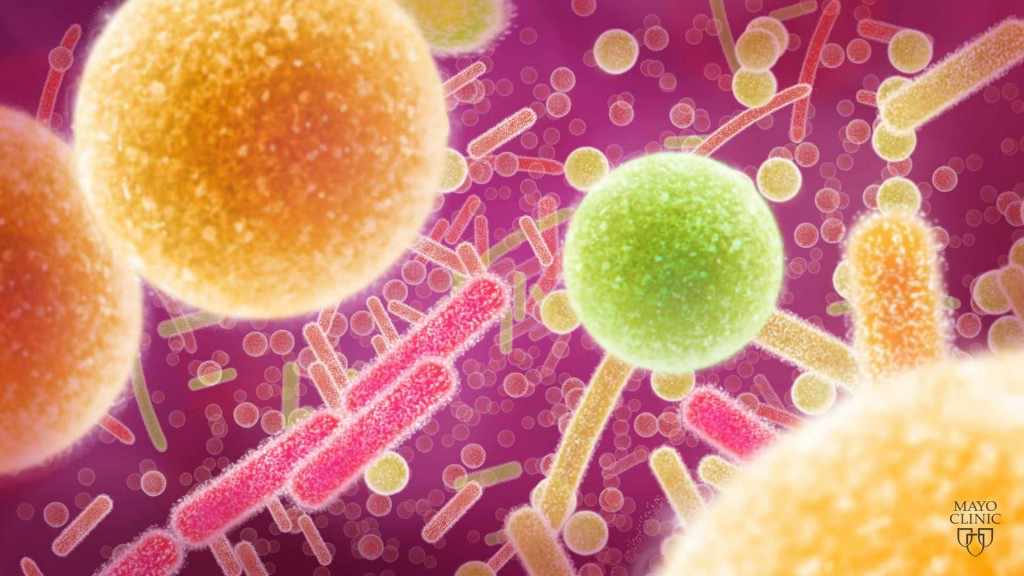-
Cancer
Mayo Clinic researchers look at post menopause as key factor in endometrial cancer

ROCHESTER, Minn. — Endometrial cancer is the most common gynecological malignancy in the U.S. and the fourth most common cancer among women. In addition, endometrial cancer incidence rates are on the rise in the western world, suggesting that alterations in environmental factors such as diet, lifestyle, and the vaginal microbiome may be important drivers in its cause.
In a study published in Scientific Reports Mayo Clinic researchers identified a microbiome signature associated with endometrial cancer, which is in part promoted by post menopause. The goal of the study was to understand how endometrial cancer risk factors alter the reproductive tract microbiome and endometrial cancer risk.
“If the microbiome does play a role in endometrial cancer, beyond being a marker for it, this could have important implications for endometrial cancer prevention,” says Marina Walther-Antonio, Ph.D., lead author of the Mayo Clinic study.
According to Dr. Walther-Antonio the established role of the vaginal microbiome as a key factor in vaginal and obstetric health, as well as vaginal microbiome differences found between different ethnicities adds to the importance of exploring the microbiome in endometrial cancer.
The research team previously found microbiome differences between patients with and without endometrial cancer in a uterine microbiome study published in 2017 that led to the development of a vaginal swab screening methodology used for endometrial cancer.”
“The new study gave us the knowledge and application needed to further develop this screening tool for endometrial cancer,” says Dr. Walther-Antonio.
Dr. Walther-Antonio and researchers are currently investigating the role of the microbiome in endometrial cancer and potentially how to prevent the actions of harmful bacteria to the host.
Overall, the team verified the main known risk factors for endometrial cancer (postmenopausal status and obesity) and identified high vaginal pH as an additional factor associated with patients with endometrial cancer.
“We have determined that all of these factors impact the reproductive tract microbiome, further identified post menopause as a key factor, and are looking ahead to discuss potential translational applications of this knowledge, which may bring new approaches to address current health disparities in endometrial cancer,” says Dr. Walther-Antonio.
This work was supported by the Mayo Clinic Center for Individualized Medicine Microbiome Program and the John W. Anderson Foundation. This project was supported by CTSA Grant Number KL2 TR002379 from the National Center for Advancing Translational Science (NCATS). This work was also supported, in part, by a career enhancement award from NIH grant P50 CA136393.
The authors declare the following competing interests: The Mayo Foundation for Medical Education and Research (inventors Andrea Mariani, Nicholas Chia and Marina Walther-Antonio) applied for a patent application “Methods and Materials for Treating Endometrial Cancer”, US 2017/0260571 A1 (published September 14th, 2017). The use of Porphyromonas somerae and accompanying microbiota as biomarkers for the detection of endometrial cancer is covered in the patent. Marina Walther-Antonio is a member of the scientific advisory board of LUCA Biologics, Inc. on research related to urinary tract infections, preterm birth, and reproductive medicine. These activities do not overlap with the research presented here.
###
About Mayo Clinic
Mayo Clinic is a nonprofit organization committed to innovation in clinical practice, education and research, and providing compassion, expertise and answers to everyone who needs healing. Visit the Mayo Clinic News Network for additional Mayo Clinic news and An Inside Look at Mayo Clinic for more information about Mayo.
Media contact:
- Colette Gallagher, Mayo Clinic Public Affairs, 507-284-5005, newsbureau@mayo.edu







